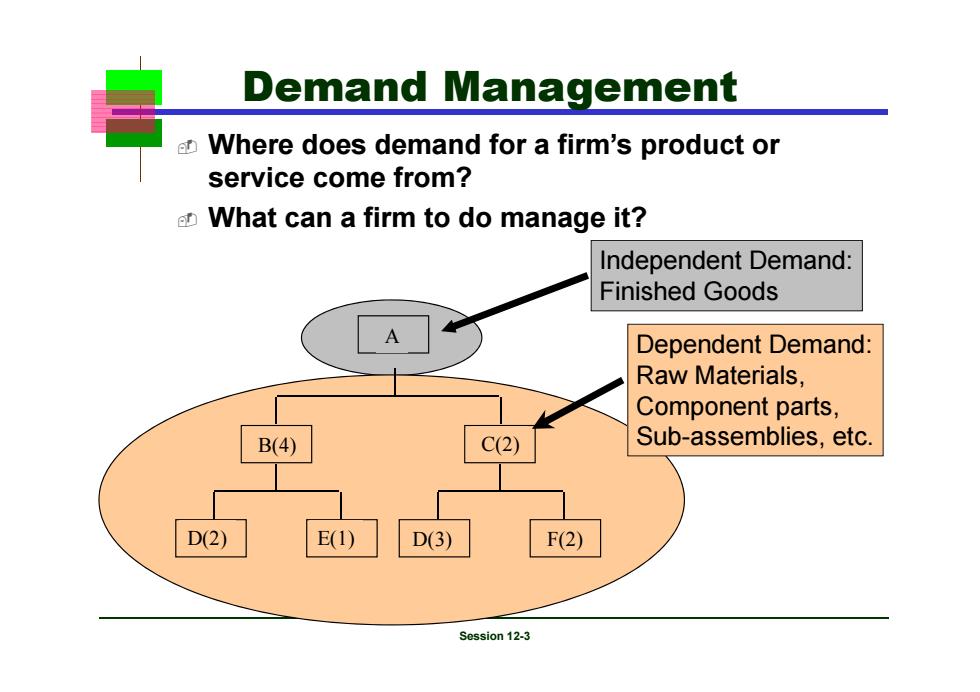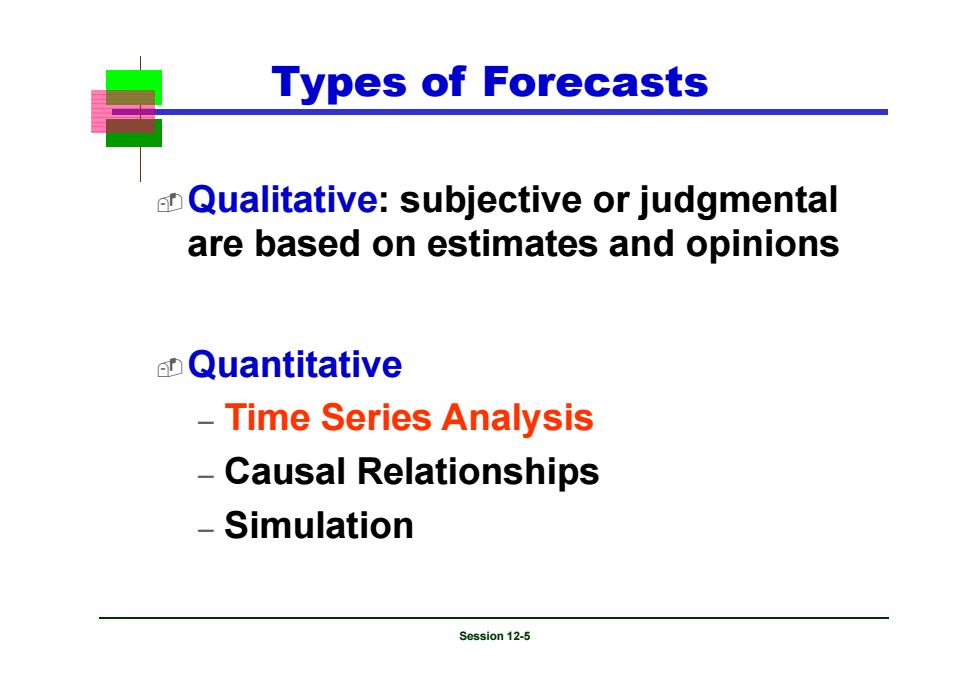
Chapter 12 Time series based Demand Management Session 12-1
McGraw-Hill/Irwin Session 12-1 Chapter 12 Time series based Demand Management

OBJECTIVES Demand Management 动 Qualitative Forecasting Methods n Time Series Analysis Static method -Adaptive method Simple Weighted Moving Average Forecasts Exponential Smoothing Exponential Smoothing with trend Exponential Smoothing with trend seasonality Simple Linear Regression Session 12-2
McGraw-Hill/Irwin Session 12-2 Demand Management Qualitative Forecasting Methods Time Series Analysis – Static method – Adaptive method Simple & Weighted Moving Average Forecasts Exponential Smoothing Exponential Smoothing with trend Exponential Smoothing with trend & seasonality Simple Linear Regression OBJECTIVES

Demand Management Where does demand for a firm's product or service come from? What can a firm to do manage it? Independent Demand: Finished Goods A Dependent Demand: Raw Materials, Component parts, C(2) Sub-assemblies,etc. D(2) E(1) D(3) F(2) Session 12-3
McGraw-Hill/Irwin Session 12-3 Demand Management A B(4) C(2) D(2) E(1) D(3) F(2) Dependent Demand: Raw Materials, Component parts, Sub-assemblies, etc. Independent Demand: Finished Goods Where does demand for a firm’s product or service come from? What can a firm to do manage it?

Independent Demand What a firm can do to manage it? Can take an active role to influence demand Can take a passive role and simply respond to demand Session 12-4
McGraw-Hill/Irwin Session 12-4 Independent Demand What a firm can do to manage it? Can take an active role to influence demand Can take a passive role and simply respond to demand

Types of Forecasts Qualitative:subjective or judgmental are based on estimates and opinions Quantitative Time Series Analysis Causal Relationships Simulation Session 12-5
McGraw-Hill/Irwin Session 12-5 Types of Forecasts Qualitative: subjective or judgmental are based on estimates and opinions Quantitative – Time Series Analysis – Causal Relationships – Simulation